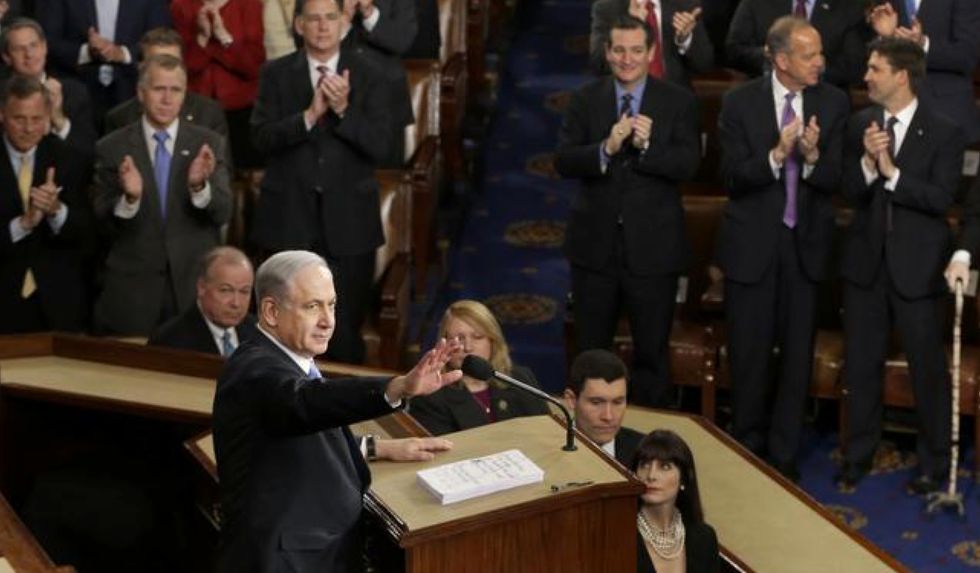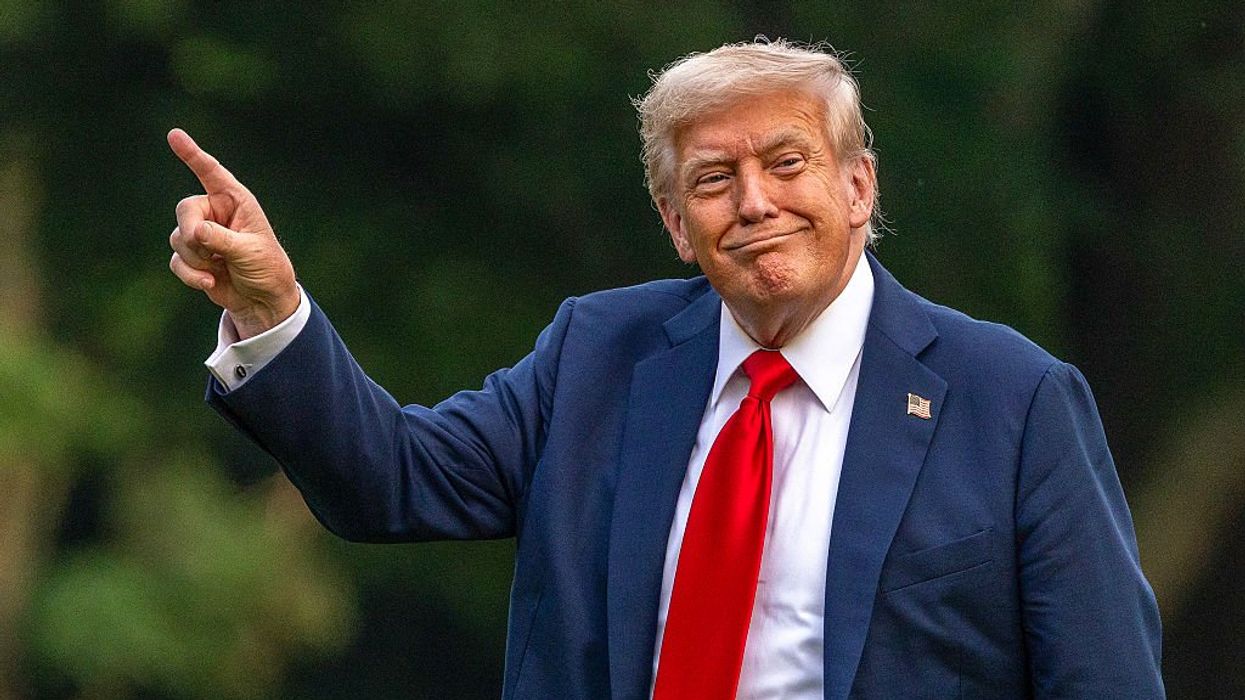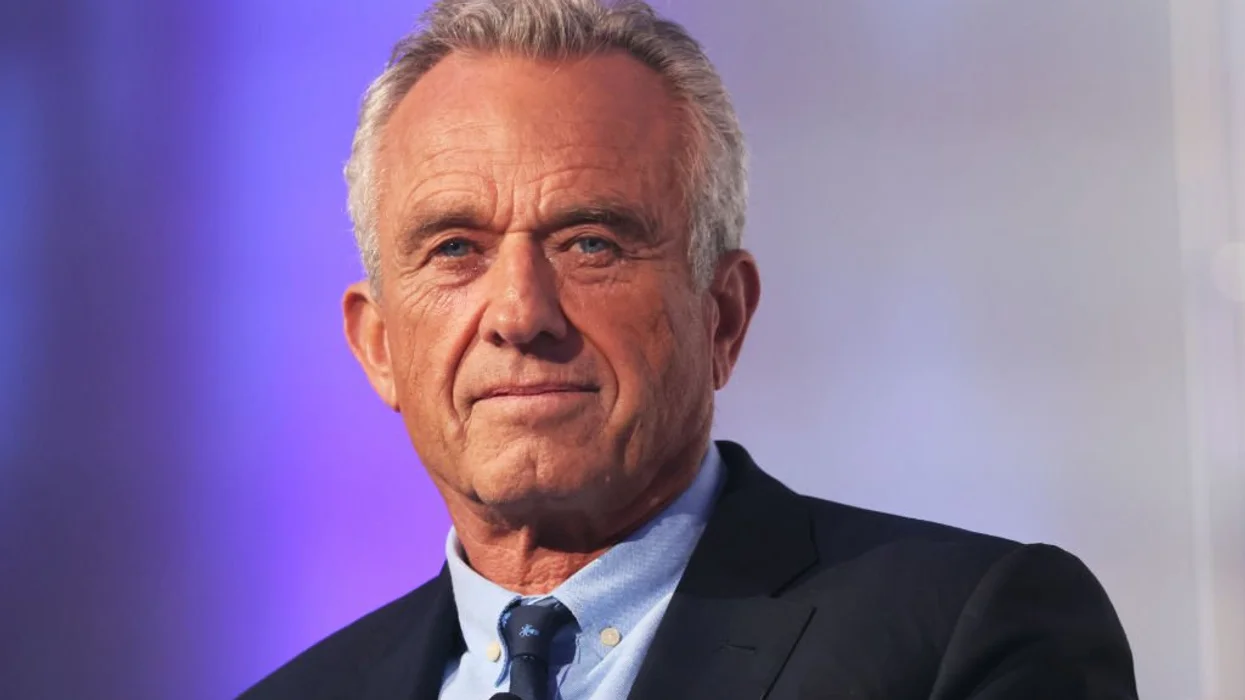Israeli Prime Minister Benjamin Netanyahu said Sunday that he's talked directly with the vast majority of members of Congress in an effort to convince them to fight the tentative Iran nuclear agreement, which he says will only put Iran on a stronger economic footing and let it continue to threaten Israel.
Netanyahu was asked on CNN how much he is working with Republicans to block the agreement, and he answered by saying he's talked with dozens of members of both parties.
"I'm not approaching it on a partisan basis," he said. "I've talked to about two thirds of the representatives of the … House of Representatives, and probably an equal number of senators from both sides of the aisle."
"This is not a partisan issue," he said. "This is not even solely an Israeli issue. This is a world issue, because everyone is going to be threatened by the preeminent terrorist state of our time."
Netanyahu made the rounds of Sunday morning political shows, and repeated his opposition to the nuclear agreement that was reached last week. While the Obama administration has said the agreement should focus only on Iran's nuclear capacity, Netanyahu has said Iran would be left with too much capacity under the agreement, and that the lifting of sanctions would strengthen its ability to act against Israel.
Because of this link, Netanyahu said last week that any agreement must force Iran to recognize Israel's right to exist. He also said negotiators should impose even tougher sanctions on Iran in order to force more concessions.
While many Democrats are similarly worried about the agreement, some started to rally around Obama's deal. Sen. Chris Murphy (D-Conn.), for example, argued that it makes no sense to return to sanctions at this point, and said the agreement is a "pretty remarkable deal."
"The idea that we should just go back to the negotiating table and put back sanctions into place, I think, doesn't understand the reality," Murphy said. "With this deal on the table, it would've been hard to get our partners, especially Russia and China, to go back to sanctions when most of our objectives had been met at the negotiating table."
Another Democrat, Sen. Dianne Feinstein (Calif.), went further by saying Netanyahu needs to stop lobbying against the deal.
"I don't think it's helpful for Israel to come out and oppose this one opportunity to change a major dynamic, which is downhill, a downhill dynamic in this part of the world," she said on CNN.
"This can backfire on him, and I wish that he would contain himself, because he has put out no real alternative," she said.






